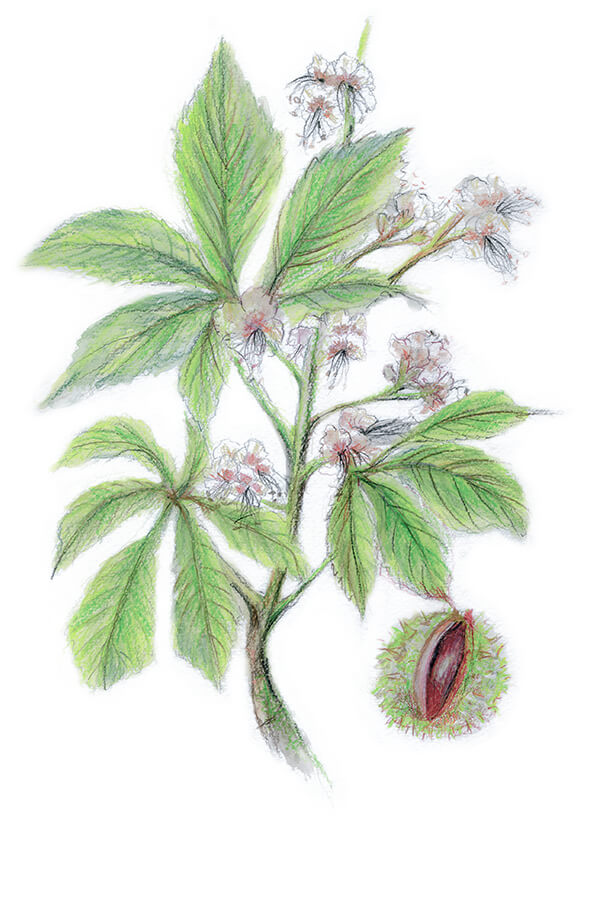
Common Horse chestnut
COMMON NAMES: AESCULUS CASTANEA, HIPPOCASTANUM VULGARE, COMMON HORSE CHESTNUT, BUCKEYE, BARK BONGAY, KONKER TREE, SPANISH CHESTNUT
____________
Horse chestnut is a tall tree originally coming from the Balkans. In Hungary the tree is very aptly called the bokrétafa = bunch tree. It was imported to our region in the 18th century. It was first described as a herb by Matthioli in the 16th century. In 1615 a French traveller brought it from Istanbul and planted it in Paris. During the subsequent 100 years it spread over the whole of Europe. Californian Indians threw crushed chestnut fruits in lakes and rivers to intoxicate fish which could then be more easily fished. In 1896 there was a reference to its healing effect for haemorrhoids.
The parts used are the seeds (chestnuts), flowers and young leaves.
Effective substances:
Aescin, quercetin, kaempherol and others.
The abilities of the Horse Chestnut:
- It strengthens vein walls and regulates venous tone during chronic venous insufficiency
- Cramps and so called “heavy legs”
- Speeds up bruise absorption
- Aching joints
- Improves circulation in blood vessels eliminating blood coagulation and preventing thrombus formation
Interesting facts:
- It has its name “Horse” chestnut as Turks used the seeds as a tonic for their draught horses and for the horse dyspnoea.
- Alternatively, its name may have come from our ancestors to whom the fruit resembled a horse ́s eye.
- Goats and pigs love the Horse chestnuts, most probably for their bitter taste.
- According to ancient legends, the horse chestnuts should always be kept in our pockets to protect us from evil. They are effective in evil prevention until they lose their shine.
- During World War II, Horse chestnut was used as a source of starch.
- Several mammals can degrade the Horse chestnut toxins and eat them absolutely safely.
- The Horse chestnut flower is a symbol of Kiev, the Ukraine ́s capital.


























